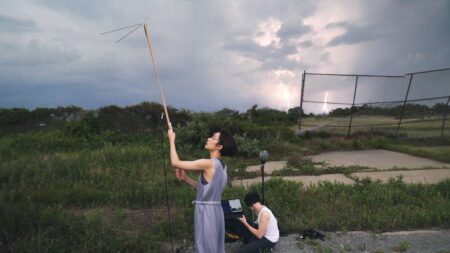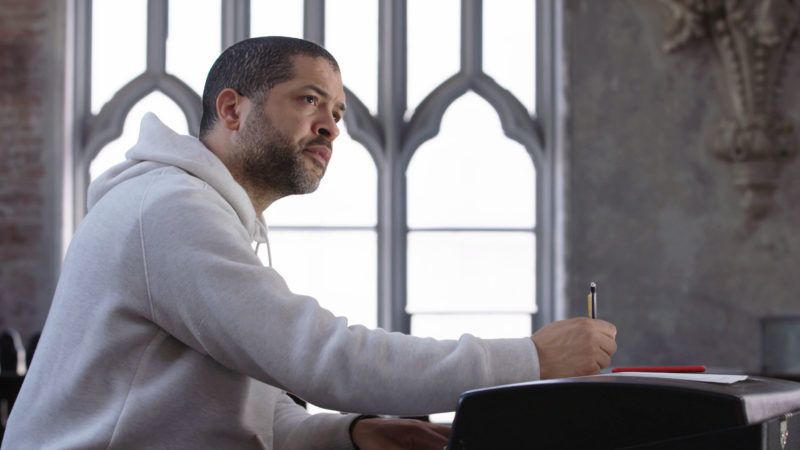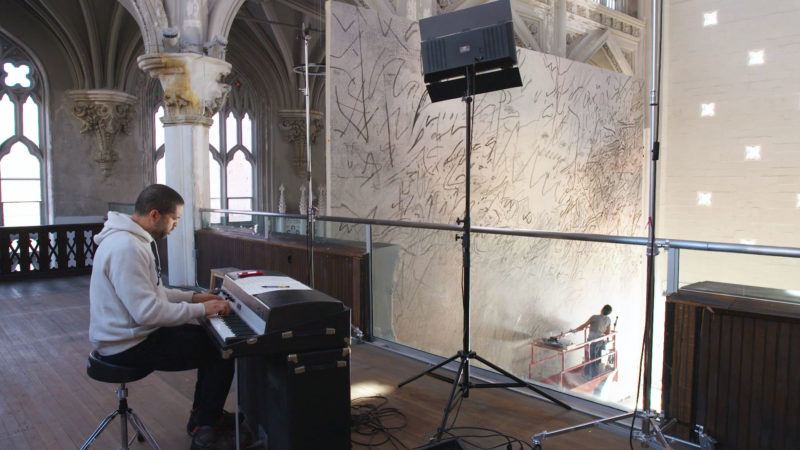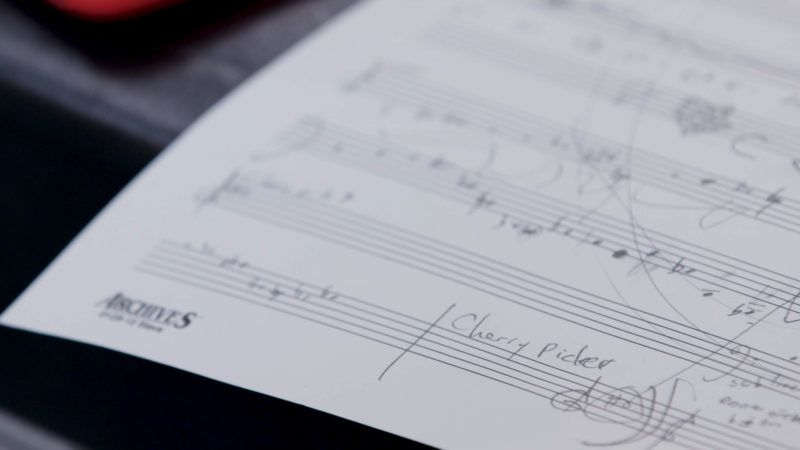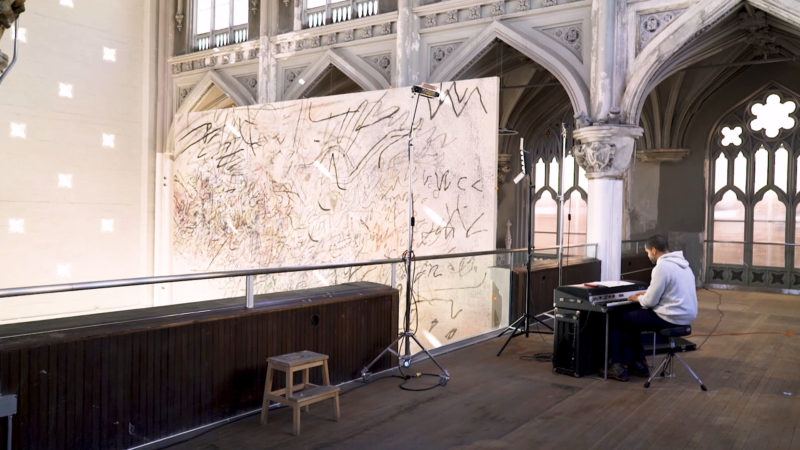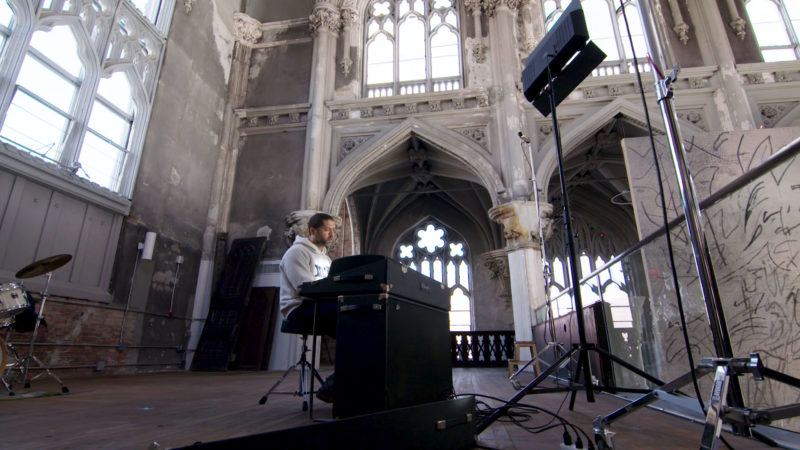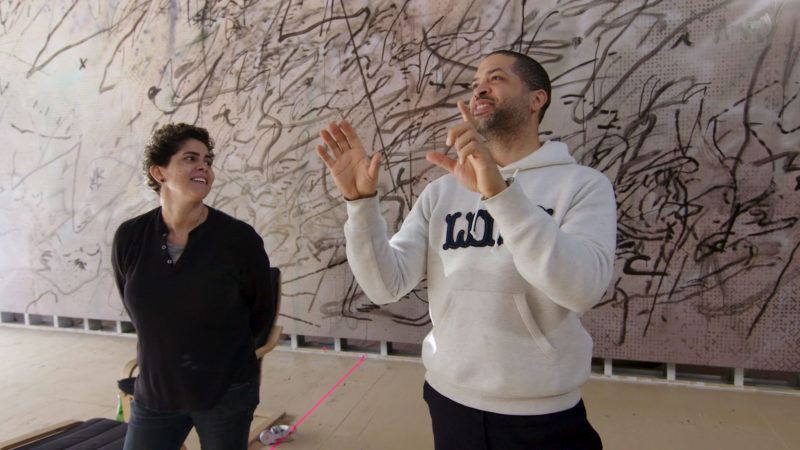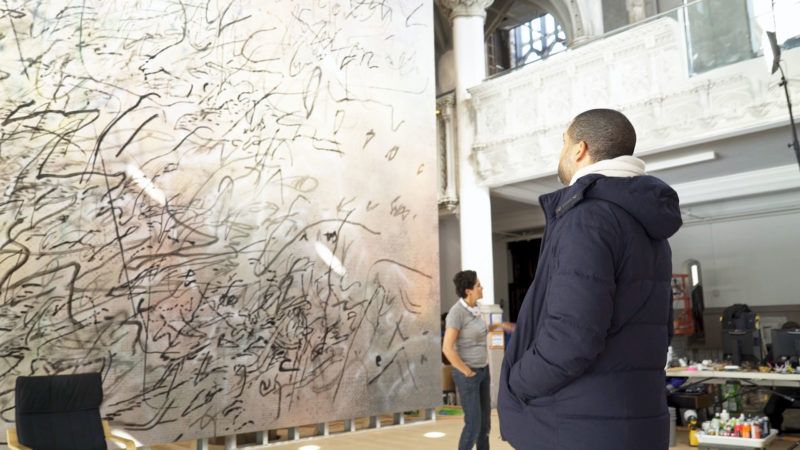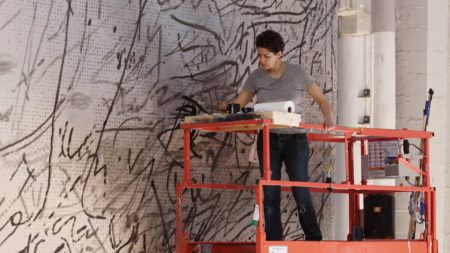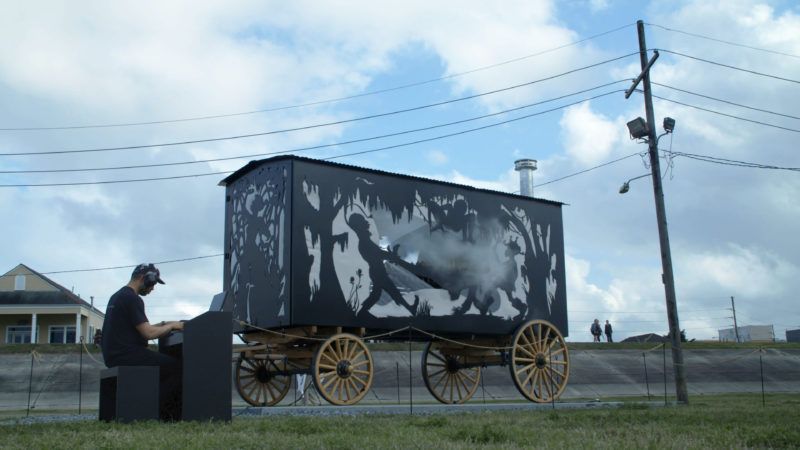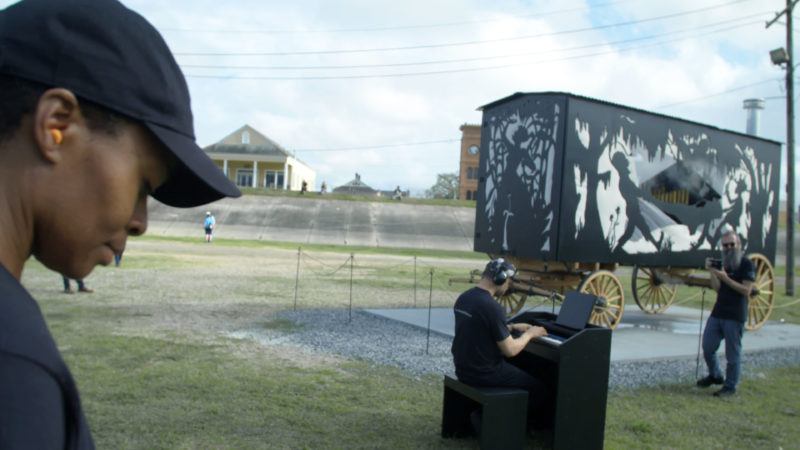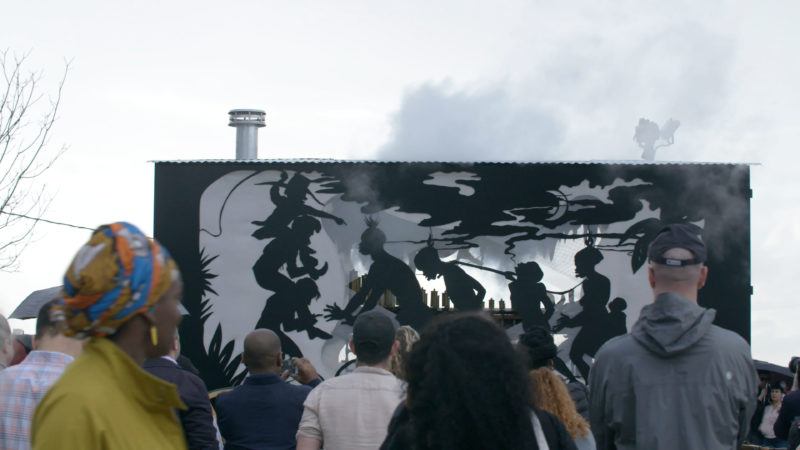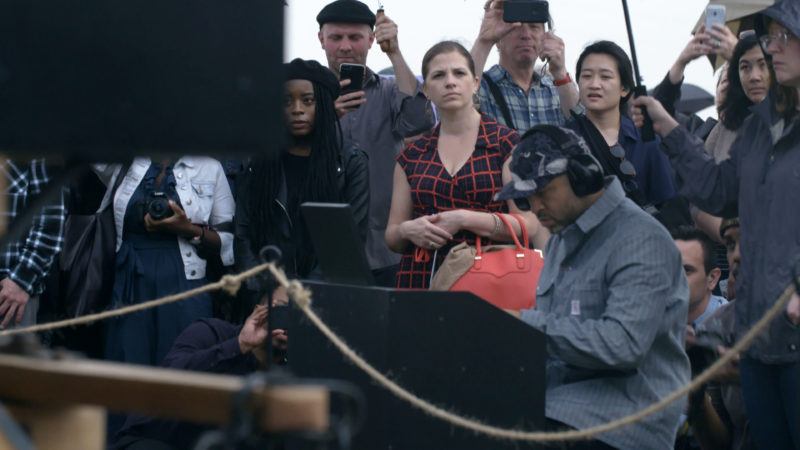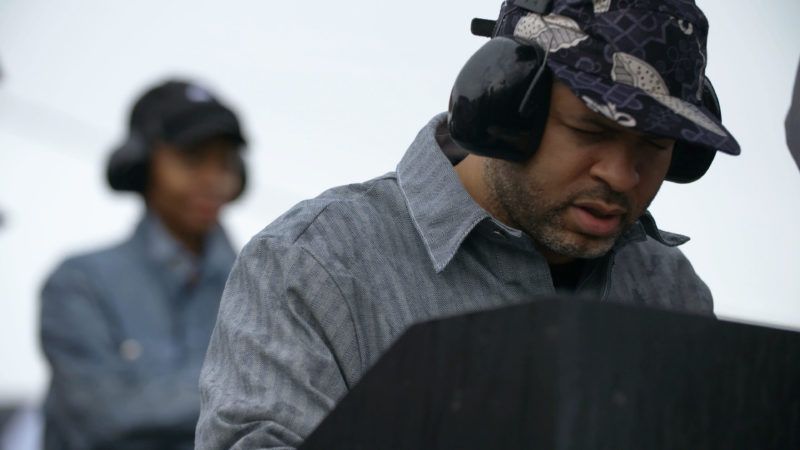Big Question
How Does Community Intensify Ingenuity?
Jason Moran scores through dialogue amongst peers from across disciplines
Julie [Mehretu] had these pieces that were stunning—they reminded me of graphic scores. I was like, “this needs to be played.” It needs to be viewed, but it also needs to be played. We also should hear the sonic option of what her dimensions reveal. What are the layers of it, and what can a musician focus on? What timbre does it bring out? Space makes you respond differently, whether you walk into your mother’s kitchen or downstairs into the subway station. The space makes the body react, but it also makes the sound react. Then I had to think about how Julie was also being affected by working in a space like that: a historic, Harlem church.
I have to live in Harlem just to say, “I’m part of that history that started in the Harlem Renaissance.” Duke Ellington and Langston Hughes were talking to people like Aaron Douglas. These relationships between the image and sound were like this; people are in each other’s faces, trying to make provocative work. I wanted to create a community for myself, one surrounded by filmmakers, writers, and poets; photographers, painters, and curators; dancers, choreographers, and actors. There was a community—not just of musicians. I love my musicians, but I also know that history gets richer if it’s in dialogue with someone else. I’ve always enjoyed running into people like Julie on the street, Thelma Golden or Sanford Biggers, and all the people who live uptown. We know we have a community here. There’s much more to learn from adjacent practices.
